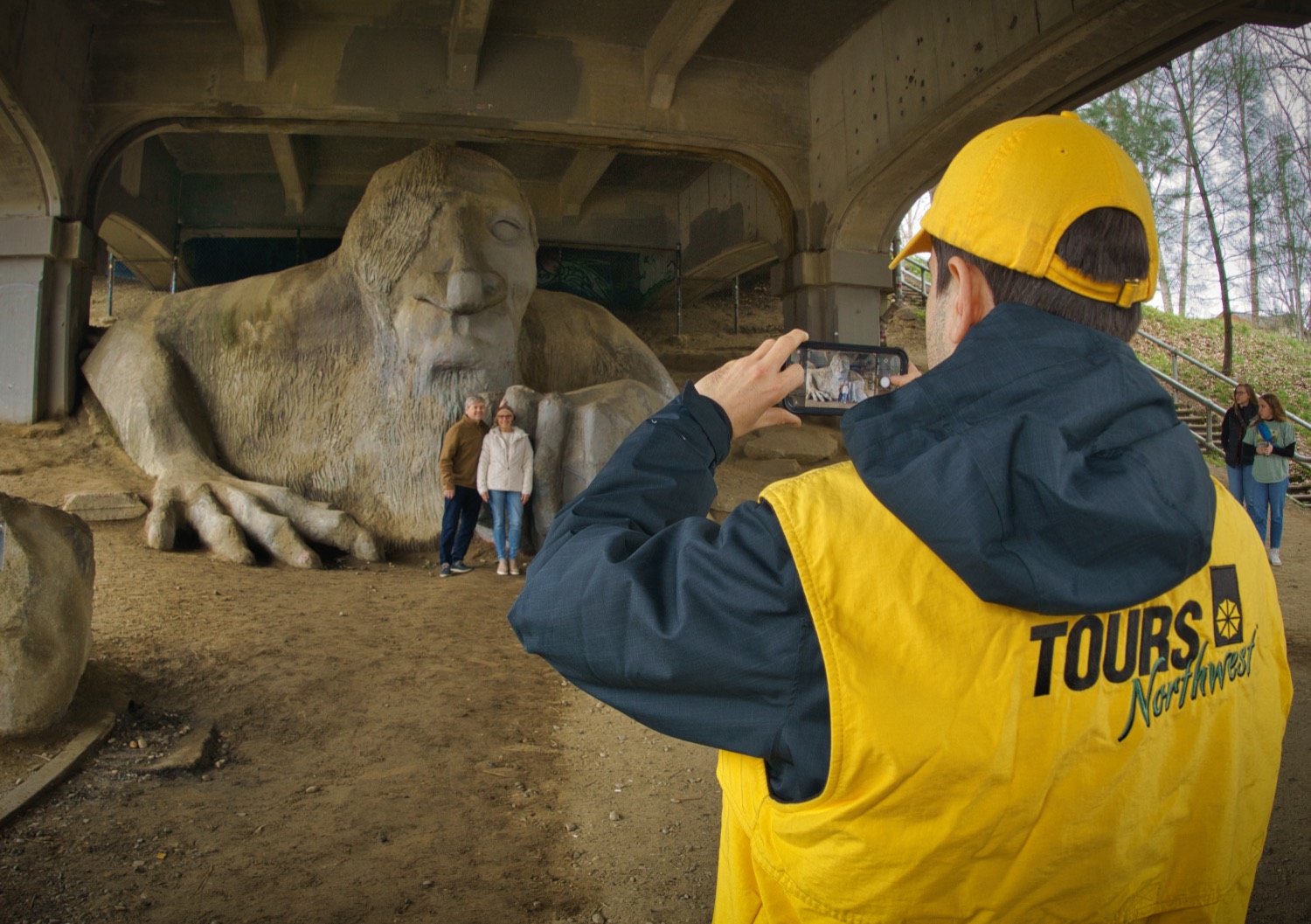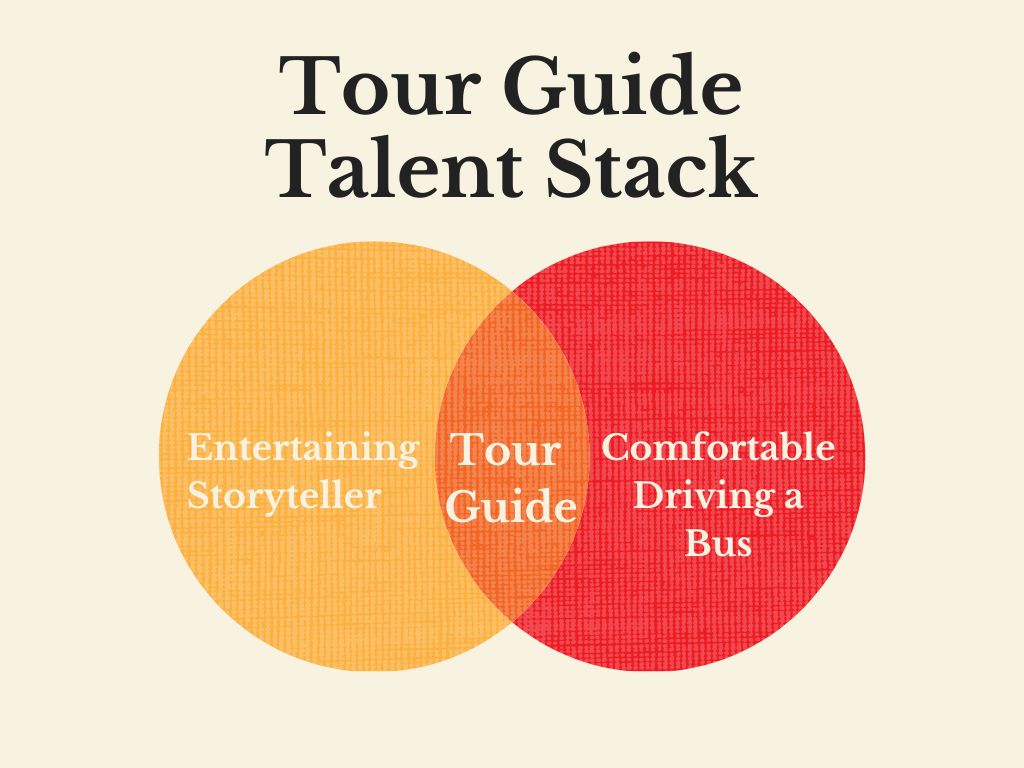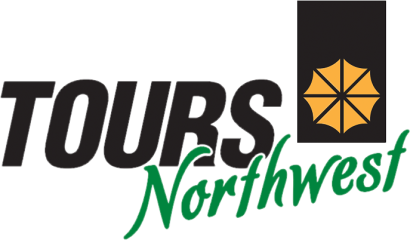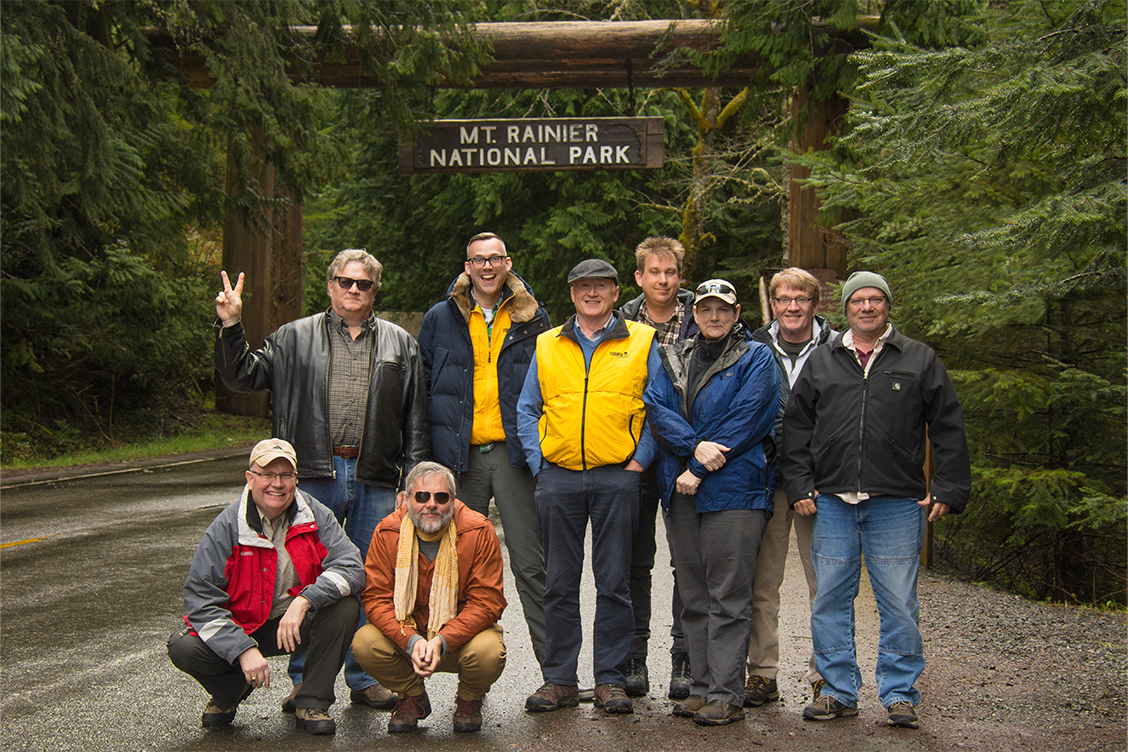IF YOU’RE SEARCHING FOR A NEW JOB, THINK ABOUT BEING A TOUR GUIDE
The Best Job You’ve Probably Never Considered
The Great Resignation (or Great Reshuffle, or Great Rethink – take your pick) has left many workers with tremendous clarity about the jobs we don’t want to do anymore, but the question of what to do next can remain frustratingly nebulous. Reinventing your career often requires finding a position that allows you to make a plausible case for shoehorning your existing skills into the list of qualifications an employer requires.
If you find yourself in this conundrum, it may be time to consider the sorts of jobs you’ve likely never thought about before – the sort of work that people tend to fall into randomly only to wonder why it took them so long to discover such a job existed.
In my experience, being a tour guide is exactly such a career. I’ve yet to meet a fellow tour guide who thought it was what they wanted to be when they grow up, yet the greatest regret I usually hear is not having discovered the profession sooner. This article will review some of the advantages I’ve found in this unconventional career path which will hopefully provide a useful framework for considering your next job move, whether you’re considering becoming a tour guide or not.

Become Semi-Entrepreneurial
I’ve always found the concept of being an entrepreneur far more appealing than the reality of being responsible for every aspect of a business and taking on all of the risks myself. I do, however, really value the sense of autonomy that a job like this provides.
While running a tour, you get to shape your guests’ experience of a place, and creating a great experience is usually reflected in the tips you receive. The quality of your tour correlates directly with how well you research, write and deliver your tour content. This provides perpetual motivation for improving your skills which prevents the onset of boredom that’s usually inevitable once you get comfortable with a job.
Although there are generally some “greatest hits” of any location that a tour guide has to include, there are nearly endless variations of the stories you can tell and the styles in which you can tell them. In addition, almost every guide has at least a couple of “hidden gems” they like to share that aren’t on the standard itinerary.
I can think of few other jobs with such a low barrier to entry in getting hired that also provide such an opportunity for growth and developing new skills.
While l love being able to take responsibility for these aspects of my work, I also love the fact that we have office staff to handle bookings and customer service, and a mechanic to handle vehicle maintenance so I don’t have to. I would call this job as “entrepreneurial-lite.”
It’s also reassuring to know that even when you have a terrible tip day, you’re still earning a good hourly wage. In fact, Tours Northwest (the company I work for), now guarantees a minimum of $35 per hour during the busy summer season, compensating the difference if you have some tours with bad tippers.
Develop Valuable Communication Skills
It’s no secret that master communicators hold some of the most lucrative jobs imaginable – think about what top comedians make for an hour on stage in a sold-out theater, or the 6-figure speaking fees commanded by some thought-leaders. Of course, it takes extensive practice (10,000 hours according to some) to reach this high level of skill, and public speaking has the added challenge of requiring an audience to provide feedback on your practice.
This is why people aspiring to these careers are willing to work for free (or even pay, in some cases) to accumulate these 10,000 hours at open-mic nights or Toastmasters clubs. Imagine, instead, having an audience delivered to your bus for hours each tour so that you can practice refining and iterating your communication skills with that valuable instant feedback and you get paid for it.
For those of us that don’t have such grandiose ambitions, great communication skills are sought after in just about every career field imaginable, making this job a great stepping stone on the path to many goals.

Build Your Talent Stack
The idea of talent stacking stems from the reality that most of us will never become extraordinary enough in a single skill to be noteworthy, but combining multiple skills which don’t overlap for most other people can help you stand out from the competition. This concept was unfortunately coined by Scott Adams, the now-disgraced creator of Dilbert, but it’s still a valid framework and useful for thinking about a potential career as a tour guide.
Let’s revisit our earlier example of stand-up comedy. Imagine all of the people capable of telling a funny story, and who might have aspirations to someday become a comedian – only a tiny fraction of those will even set foot on a stage, much less become successful. Now, imagine a Venn diagram with that group of people in one circle and people who are comfortable driving big vehicles (also a large group) in the other circle:

The overlap of these skills is relatively small, which means it’s much easier to become exceptional (with the job security and other associated perks) if you’re only competing with the relatively small percentage of people who have both these skills.
Now, add a third circle for the subject matter expertise you’re going to develop in whatever you focus your tours on, and the overlapping area becomes a very small niche (one with only you, perhaps).
Admittedly, learning to drive a bus is usually the biggest objection of people who would otherwise love to be a tour guide, but it is an attainable skill (and easier than you’re probably fearing). This hurdle is actually an asset, though. Because so many applicants are scared off by the driving component, most companies (including Tours Northwest) are willing to take a chance on someone without much experience and invest in their training. Very few jobs offer such a low barrier to entry in terms of formal credentials while also providing the opportunity to build such a valuable talent stack for yourself.
Final Thoughts
I’ve focused most of this article through the lens of professional development, but there are plenty of less tangible benefits to this job that I must also mention:
- Job Satisfaction – most of the time, this work is fun! There are challenges, of course, but it helps that most of your interactions are with people on vacation who share the same goal as you – having a good time. It also doesn’t hurt that most of my time on the clock is spent leading tours in the most beautiful national parks imaginable – places I’d love to spend my time even if I wasn’t getting paid.
- Power Dynamics – while the previous point could be made of most jobs in the hospitality/tourism industry, there is a key difference which I think explains why tour guide jobs aren’t suffering the same mass exodus of the rest of the hospitality industry. Most hospitality jobs are subservient in a way that a tour guide isn’t, because guests are paying for your knowledge and expertise, not just your service.
- Work/Life Balance – flexibility is the nature of this job, and the seasonal ebbs and flows of demand create a natural space for rest and travel which exists in few other industries.
- Lifelong Learning – this work motivates you to have your finger on the pulse of your community while always keeping an eye out for great stories you can share. This leads you to engage with your city more deeply than most, and will probably give you a greater appreciation for where you live.
- Longevity – I’ve never worked for a company with as many long-term employees as Tours Northwest, which I think proves many of my earlier points. Many of my coworkers are beyond the typical age of retirement, but choose to keep doing this at least part-time.
My personal journey to this career began with a degree in documentary filmmaking which I (shockingly) was never able to implement into gainful employment. As someone who also loves learning and sharing knowledge, I often flirted witht the idea of going back to school so I could teach, but ultimately realized I lack the patience for the politics of academia. After years of working at random jobs to pay the bills, I discovered that becoming a tour guide was a way to utilize my research and storytelling skills from college and have an outlet for the random knowledge I love to acquire.
I hope this article has provided some ways to evaluate potential jobs that may not have been on your radar, and if you do contemplate becoming a tour guide (and live in the Seattle area), I hope you’ll consider Tours Northwest.

